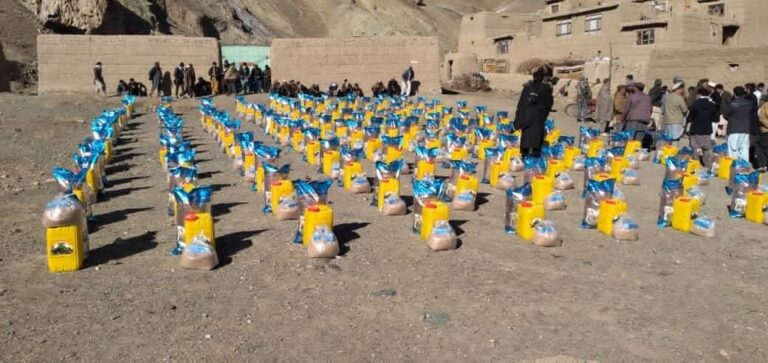Officials at the Ministry of Rural Rehabilitation and Development Affairs say that in the first phase of the national relief (Dastarkhan-e-Milli) program, which previously began across the country, humanitarian aid, including food and medical supplies, have been distributed to more than 20,144 families.
Mujubur Rahman Karimi, the Acting Minister of Rural Rehabilitation and Development, said in a press conference on Monday that more than 20,000 families have received assistance in the first phase of the national relief program, and that 12,000 “poor” families are expected to receive assistance at this stage and the humanitarian aids will be distributed to 896 villages including 1.8 million people across the country.
Karimi noted that the aid packages for each family that are considered at this stage include flour, rice, oil, beans, chickpeas and soap, which is equivalent to four thousand Afghanis.
According to him, 11,200 villages out of 12,896 villages have been completed so far, and the package distribution and monitoring committees have been formed for 9,700 other villages.
According to the Acting Minister of Rural Rehabilitation, plans have been made to distribute aid packages in 9,200 villages, and the money have been transferred to the development councils of 3,000 villages, bringing the total amount of money transferred so far to $ 25 million.
Karimi stressed that the first phase of the national relief program will be implemented throughout the country within the next three months, and the total cost is about $ 86 million, which will be paid by the World Bank.
He added that after the completion of the first phase of the National Relief Program, the second phase will begin, in which 20,397 villages in 235 districts, including 2.5 million households across the country, will be covered by the humanitarian aids.
The Afghan government has earlier launched the Dastarkhan-e-Milli program to help “90 percent population” in Afghanistan to cope with the Coronavirus induced economic and financial woes.













